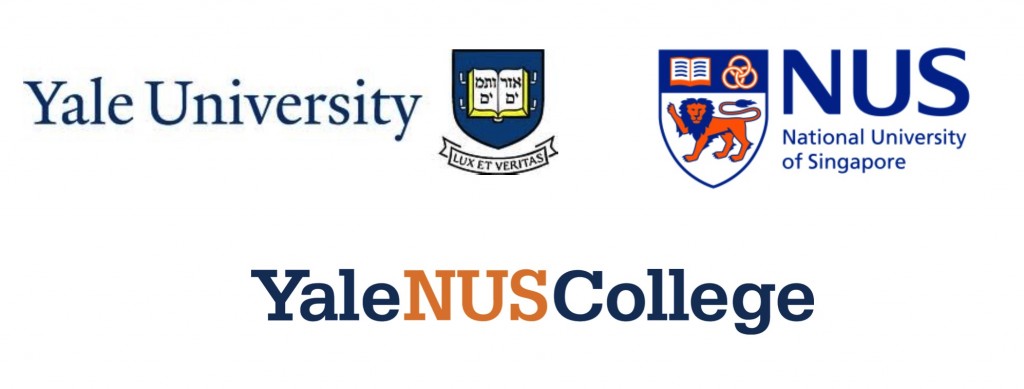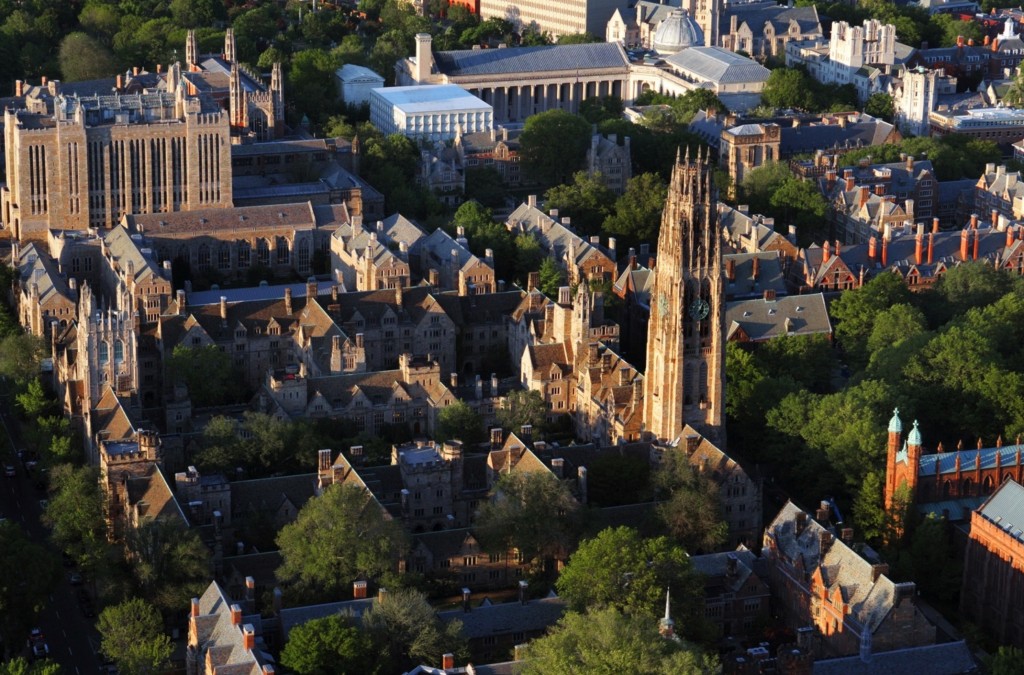During the 2015-16 academic year, I worked with the Yale-NUS College President and Dean of Faculty to organize and plan a symposium and workshop on innovation in liberal arts and sciences, based at Yale University in New Haven, Connecticut, June 6-9, 2016. The meeting gathered leaders from the top universities and colleges in the US to reflect on current trends and opportunities within higher education and to focus on effective, innovative curricula as they exist within campuses like Yale, Columbia, Yale-NUS College, and U. Chicago. Leaders from universities, liberal arts colleges, and foundations will all discuss the opportunities and emerging new models for higher education and focus on some of the lessons learned from three years of innovations at the new Yale-NUS College in Singapore. Below is a summary of the meeting.
Globalizing the Liberal Arts: Yale Symposium and Workshop – Yale University, June 6-9, 2016
Following the inaugural symposium and a year of reflection on the experience of the Common Curriculum, Yale-NUS College will convene an estimated 60 faculty and senior staff from an estimated 25 liberal arts and sciences institutions in the US and around the world for discussion about the College’s curriculum, as a starting point for a more comprehensive and inclusive conversation concerning questions such as:
- How do institutions like ours create new forms of undergraduate education that innovate and embrace a more global curriculum?
- What does diversity mean in the 21st century in both the international and U.S. contexts, and how should liberal arts and sciences curricula evolve to help students?
- How can we create effective programs for faculty development and exchange involving both North American and Asian faculty members, possibly using technology?
- How do liberal arts and sciences institutions define, disseminate, and measure our learning objectives, particularly concerning general education requirements?
- How could we use research-informed pedagogical techniques and evidence-based scholarship to develop freshman and sophomore courses and assess teaching and learning in the general education curriculum?
- How do we sustain “high-touch” pedagogy amid budgetary pressures and competing demands on faculty time and other resources?
In designing the Symposium and Workshop, Yale-NUS plans to focus on these questions and the related themes by convening a variety of liberal arts and science institutions to present some of the key underlying rationales for their curricula, the methods by which their curricula have been developed and assessed, and key findings from reviews of their curricular programs. A few keynote presentations by a range of speakers from a broad range of institutions would allow all attendees to gain an overview of the higher education landscape – both to better understand the strengths of the liberal arts and sciences model as well as to identify key areas of concern that the conference attendees could discuss in a focused and meaningful way. The conference will also highlight new research-based techniques of teaching and assessment that could be incorporated into course design and assessment.
Workshop and Working Groups during the Yale Meeting.
One of the most exciting parts of the June Globalizing the Liberal Arts meeting is the Workshop, which will gather teams of professors and other academic leaders to work in a concerted way to help solve some of the most urgent problems facing higher education. A description of the workshop topics is below and was compiled by the Workshop Design Team, which includes Charles Bailyn, Dean of Faculty, Yale-NUS College, Bryan Penprase, Director of the Teaching and Learning Centre, and Jenifer Raver, Director of Academic Programs. The hope is that the teams will continue to work long after the conference and submit proposals for funded efforts to be conducted in the upcoming three years.
Workshop Topics and Approach
In the workshop stage of the GLA meeting, we will bring together faculty members and administrators from Yale-NUS, Yale, and leading institutions from across the country to collaboratively address some of the most critical problems facing liberal arts curricula today. All of these issues affect all of our institutions, and were particularly salient in the first years of Yale-NUS College. From the workshop we will benefit from our diverse experiences and collectively articulate new insights and solutions to these problems. Each working group will be asked to describe the ways in which these issues challenge their own institutions and higher education generally, and to provide an outline of a proposal for a new set of courses or programs to help address these problems.
During the workshop program there will be opportunities for a few short (15-20 minute) talks to the group as a whole, and for somewhat longer presentations or activities to particular working groups. Seven topics for working groups are presented below.
Questions and Goals for Working Groups at the GLA Workshop
- What are the most promising directions for a globalized humanities curriculum in the United States? Two traditional approaches to the humanities curriculum in liberal arts settings have been “western civ” core curricula on the one hand, and a purely distributional system with no specific requirements on the other hand. The recent rise of liberal arts colleges in Asia has prompted exploration of centralized curricula that include works from around the globe in a structured manner, while there are calls in the US for “ethnic studies” requirements that are in many cases focused primarily on the American experience. There are also more general pedagogical questions of how reading and studying of complex texts from many cultures should be taught and studied. This working group will consider the structure and pedagogy of introductory humanities curricula, and how global elements can most effectively be introduced in an American context.
- What is the role of the creative arts in a liberal arts curriculum? Creative writing and the visual and performing arts are a mainstay of life in residential liberal arts colleges. But the arts are often practiced by students in an extra-curricular context that is disconnected from the curriculum, and while history and criticism of art has a strong the place in the curriculum, the status of courses in the practice of art varies considerably between institutions. This working group will explore the connections between extra-curricular and curricular arts opportunities, and the place of courses in the practice and production of the arts within the context of liberal arts colleges.
- Should discipline-based introductory courses be supplemented or replaced by “problem-based” or interdisciplinary courses? Discipline-based introductory surveys are the mainstays of introductory instruction in the social and natural sciences in many liberal arts settings. Introductions to such disciplines as Biology, Chemistry, Economics, Physics, Political Science and Psychology are among the most popular courses on many campuses. But this approach tends toward disciplinary silos, and privileges the theoretical underpinnings of the disciplines over the consideration of complex interdisciplinary problems that are of great practical and intellectual importance, and that are exciting to many students. There has thus arisen considerable interest in courses or course exercises based on addressing problems that arise in contemporary life and in research from the perspective of a variety of disciplines. This working group will explore the possibilities and challenges in using interdisciplinary and problem-based instruction at introductory and intermediate level.
- What skills should all 21st century college graduates have, and how can we ensure that they have them? The skill set that a well-educated citizen should have in the 21st century is dauntingly extensive. To cope with the daunting challenges of contemporary life, our graduates need to be adept in written, oral and visual communication; quantitative reasoning and coding; rhetoric and argumentation. All these and more will be needed to empower graduates to be responsive and effective citizens and leaders. These skills can be taught in courses designed specifically for training in one or two skills, or can be integrated into a sequence of multiple courses across many disciplines. There are also serious issues that arise from the large range of preparation students bring with them from their previous education. This working group will consider how best to identify, teach and assess the most important 21st century skills in a contemporary liberal arts curriculum.
- What can and should “experiential learning” contribute to a liberal arts education? Off-campus experiential learning experiences can provide a critically important component of a liberal arts education. They can inspire both students and faculty, bring together students and faculty with the local and global community, and provide critical contacts for future student internships and employment. However such experiences can be difficult to organize, and are sometimes thought to lack intellectual rigor. This working group will study how to create and sustain positive, intellectually rigorous experiential learning for students, and to align these experiences with academic learning outcomes and the on-campus curriculum.
- What are the best approaches to the challenges and opportunities presented by an increasingly diverse multi-national faculty and student body? One of the crucial concerns at any residential colleges in the 21st century is using the increasing levels of student and faculty diversity (along many axes) in positive ways. The increasing socioeconomic and racial diversity on campuses provides many exciting new opportunities for learning, but several challenges as well; especially in cases where students have diverse preparation for academic work. One important aspect of diversity in the College and University campus is the increasing presence of international students. While “diversity” is defined differently in different national and cultural settings, the challenges are often surprisingly familiar. This working group will explore the challenges and opportunities presented by increasingly diverse cohorts of students, including the rising numbers of international students on residential college campuses, and how to ensure that this diversity is a source of inspiration and learning, rather than a source of conflict for our communities.
- How can best practices of “active learning” and classroom technology be spread among the faculty? Over the past few decades there has been considerable scholarly work documenting the gains in student learning from active learning. This work has caused many instructors to significantly change their teaching strategies. In some cases new technologies are being deployed to increase engagement and active learning in the classroom, or to create hybrid and “flipped” classrooms with online tutorials, quizzes and lectures. But active learning techniques can be challenging to implement, and are sometimes resisted by faculty members who either lack the skills or the time to implement these techniques effectively, or who are suspicious of new pedagogies and technologies. This working group will consider the most promising routes toward helping faculty members adopt and successfully use promising new pedagogical approaches in active learning.


